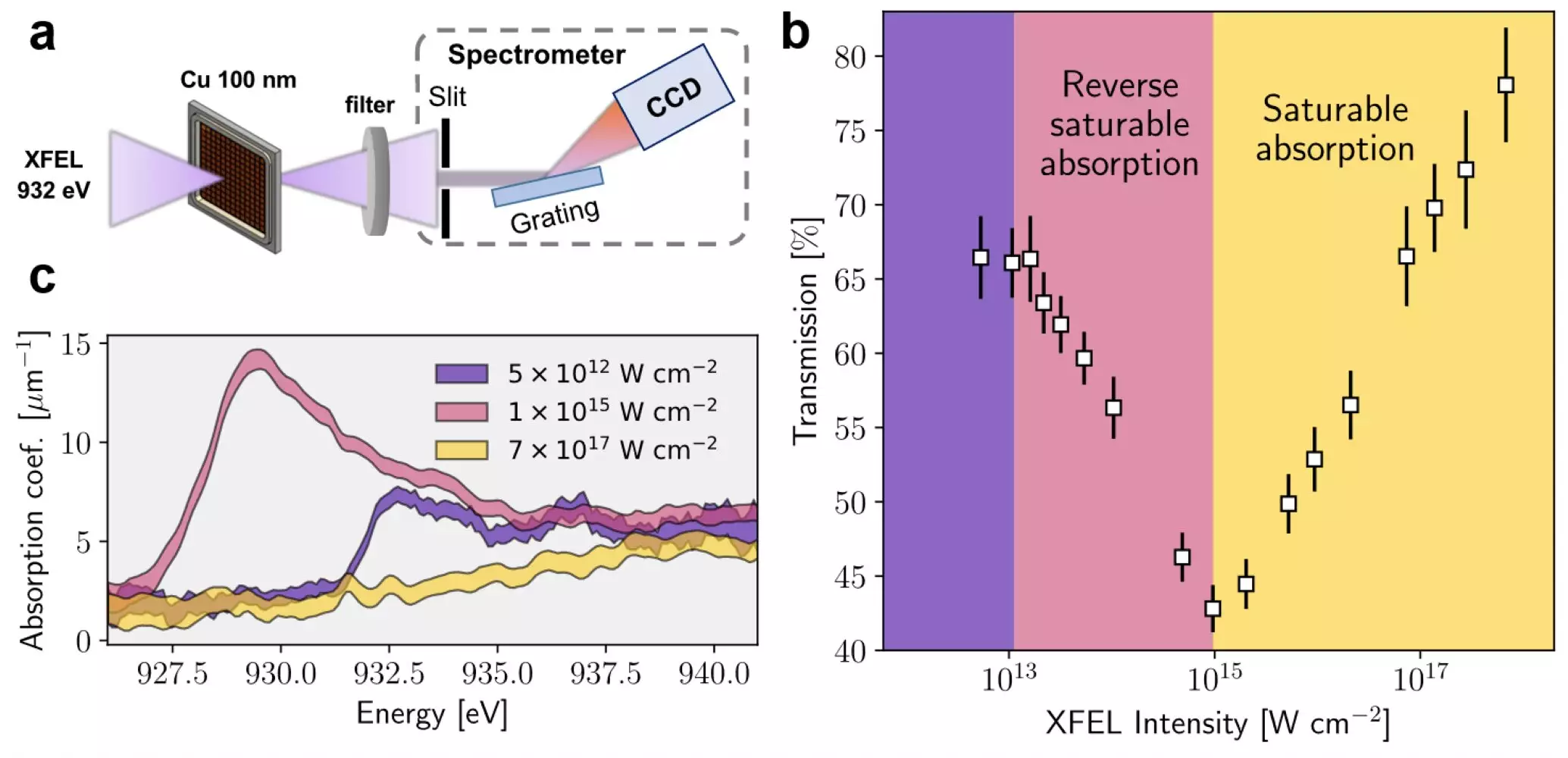Warm Denser Matter (WDM) is an intriguing state of matter that occurs under extreme conditions, mimicking the environments found in the interior of planets or during fusion reactions. Scientists at the European XFEL have made groundbreaking strides in generating and studying WDM, shedding light on this elusive state of matter.
The European XFEL’s powerful X-ray laser has been instrumental in creating and analyzing WDM states. By focusing intense X-ray pulses on a copper foil, researchers were able to induce a transition to warm dense matter, leading to significant changes in the material’s properties. The findings from these experiments have paved the way for a deeper understanding of WDM and its implications for applications such as inertial confinement fusion.
Warm dense matter exists in a unique temperature and density regime that falls between the physics of condensed matter and weakly coupled plasmas. With temperatures ranging from 5,000 Kelvin to 100,000 Kelvin and pressures in the hundreds of thousands of bars, WDM is challenging to produce and study in traditional laboratory settings. However, the use of powerful X-ray lasers like those at European XFEL has proven to be an effective tool in generating and characterizing WDM.
One of the key indicators of WDM is the drastic changes in opacity observed in materials under extreme conditions. When exposed to intense X-ray pulses, materials like copper can exhibit saturable absorption (SA) or reverse saturable absorption (RSA) depending on the interaction with the X-ray beam. These rapid alterations in opacity provide insight into the behavior of electron dynamics in WDM, offering valuable information for inertial confinement fusion research.
As researchers delve deeper into the realm of warm dense matter, the need for even shorter X-ray pulses becomes apparent. The ability to generate attosecond pulses at facilities like the European XFEL opens up new possibilities for studying electron movements in real-time during the formation of WDM or chemical reactions. This cutting-edge research holds the potential to revolutionize our understanding of chemical processes, catalysis, and fusion reactions.
The research conducted at the European XFEL on warm dense matter represents a significant advancement in the field of plasma physics and materials science. By harnessing the power of intense X-ray lasers, scientists have been able to explore exotic states of matter that were once beyond reach. The future of WDM research is bright, with new insights and applications on the horizon that could revolutionize energy production and scientific discovery.



Leave a Reply